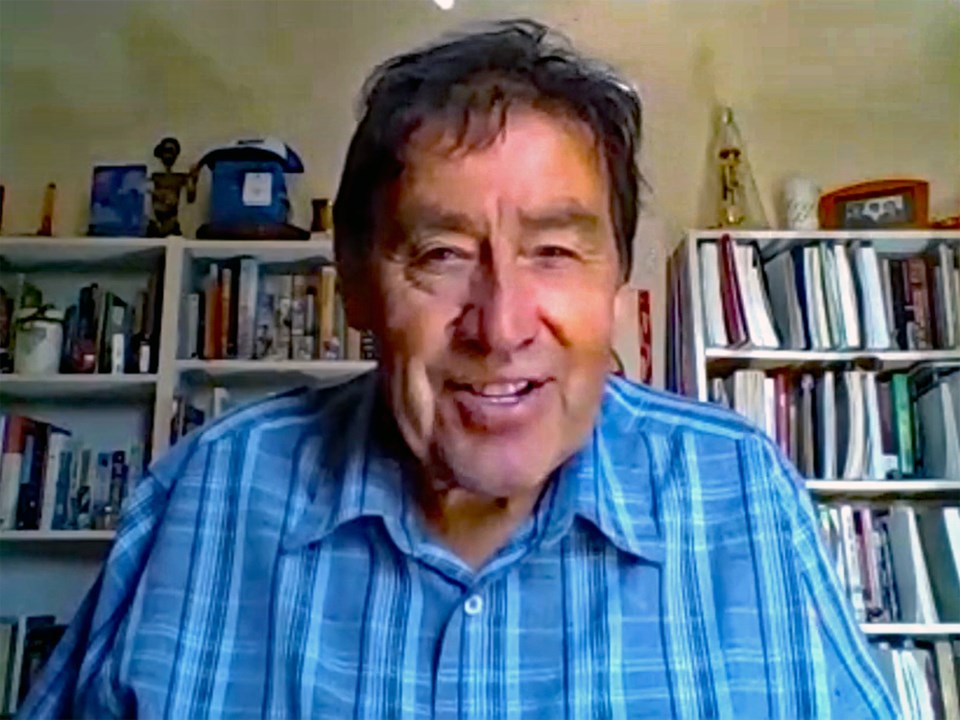SASKATOON — Reflecting on recent events, Deacon Harry Lafond is hoping Catholics in Indigenous communities in the Diocese of Prince Albert will become more involved in the church as part of the healing and reconciliation process.
Lafond, part of the Indigenous people ministry of the diocese, said the response within Indigenous communities is mixed with most parishioners attending church services belonging to the older generation.
“I think it’s a mixed response. Sometimes, depending on the generation we’re dealing with, you will find older people continuing to go to church because they need to participate. There’s quite a bit less involvement by the younger generations,” said Lafond.
“There is a turning to Indigenous spirituality as an option. Some are not participating in any organized spiritual entity. My experience over the years has been there’s a lot less active involvement in the Catholic church by Indigenous peoples.”
However, he is hopeful it would soon change after Pope Francis issued an apology April 1 after separately meeting with representatives of Canada’s Indigenous people (First Nations, Inuit and Métis).
“I would hope that it would change in the context of what we’re asking for: reconciliation, which is an understanding of who we are [as Indigenous people] and the value of our spiritual teachings,” said Lafond, a member of the Muskeg Lake Cree First Nation.
“The value of our spiritual teachings are part of our worldview and our culture. We’re not looking at returning to the spiritual missionary experience that we’ve had in the last 400 years.
Pope Francis apologized for the abuses and other atrocities done by members of the Catholic Church to Indigenous children who attended residential schools. The apology is specially directed to survivors who have to live the intergenerational trauma.
Lafond said he follows the actions and teachings of Pope Francis when it comes to how the church is working towards healing its strained relationship with Indigenous people.
“I take my cue from what Pope Francis is doing. He’s going to have the Catholic church, all over the world, involved in a synod activity to gather the voice of Catholics. So, we’re part of the Catholic world,” said Lafond.
“So, I take my cue from that. What reconciliation is pointing to is the Catholic church’s capacity to think and be able to begin to lay out change in the engagement with ordinary people. Become more in the spirit of dialogue, understanding and empathy."
He added he believes the apology made by Pope Francis is the first half of events that set the tone for the church’s listening and relationship with Indigenous people that would lead to the pontiff visiting Canada later this year.
“I’m looking forward to the second half when Pope Francis comes to Canada and he encounters other Indigenous peoples on their land, their ground, aside from the meeting and visit in the Vatican,” said Lafond.
He said that even current bishop of the Prince Albert Diocese, Stephen Hero, has been meeting with Indigenous communities and making an effort to reach out to their leaders as part of the church’s move towards healing and reconciliation.
“Bishop Stephen has made a lot of effort, since his installation last year, to visit as many Indigenous communities as possible. He’s been received respectfully by these communities,” said Lafond.
“He also participated in the gathering in North Battleford to commemorate the people who attended the Delmas residential school. He was also invited to sit in a pipe ceremony and participate in the gathering.”
He said the bishop felt that these communities acknowledge his presence as truly working towards healing and reconciliation. “That’s an indicator, I think, that the spirit is in our guidance in terms of relationship building.”



